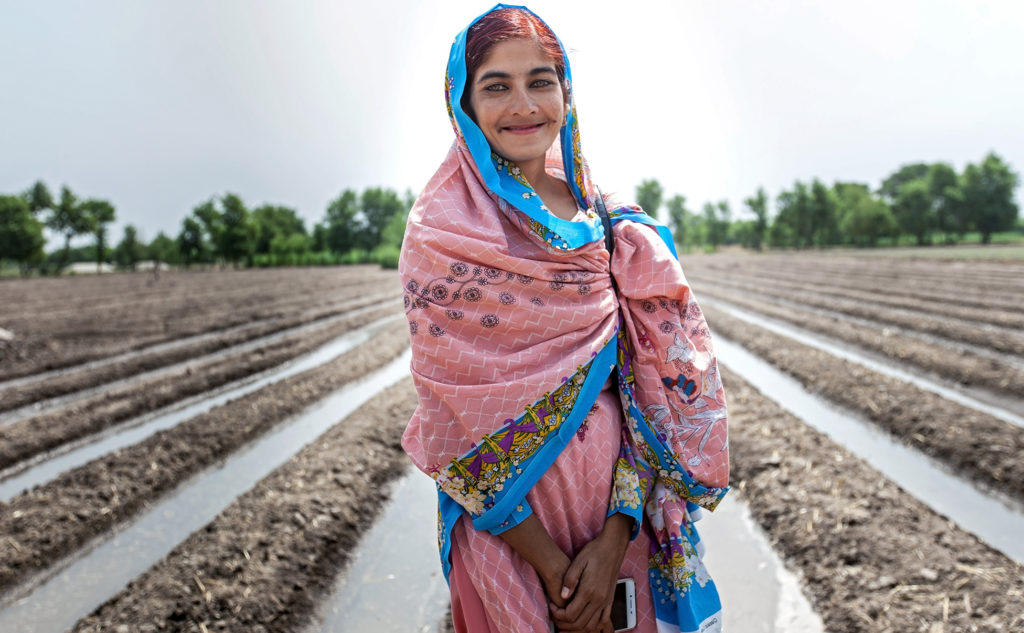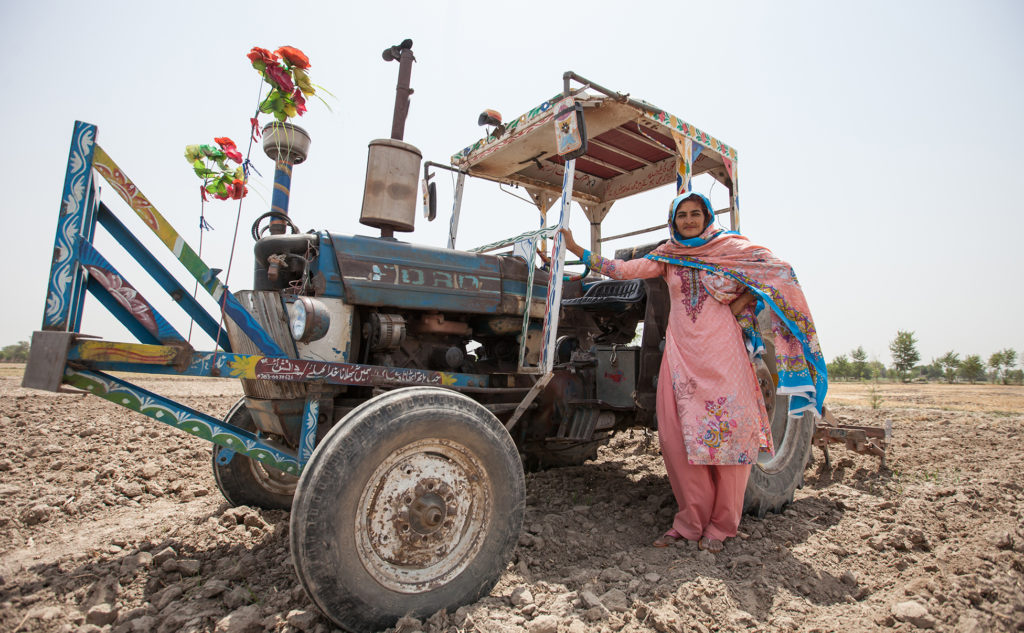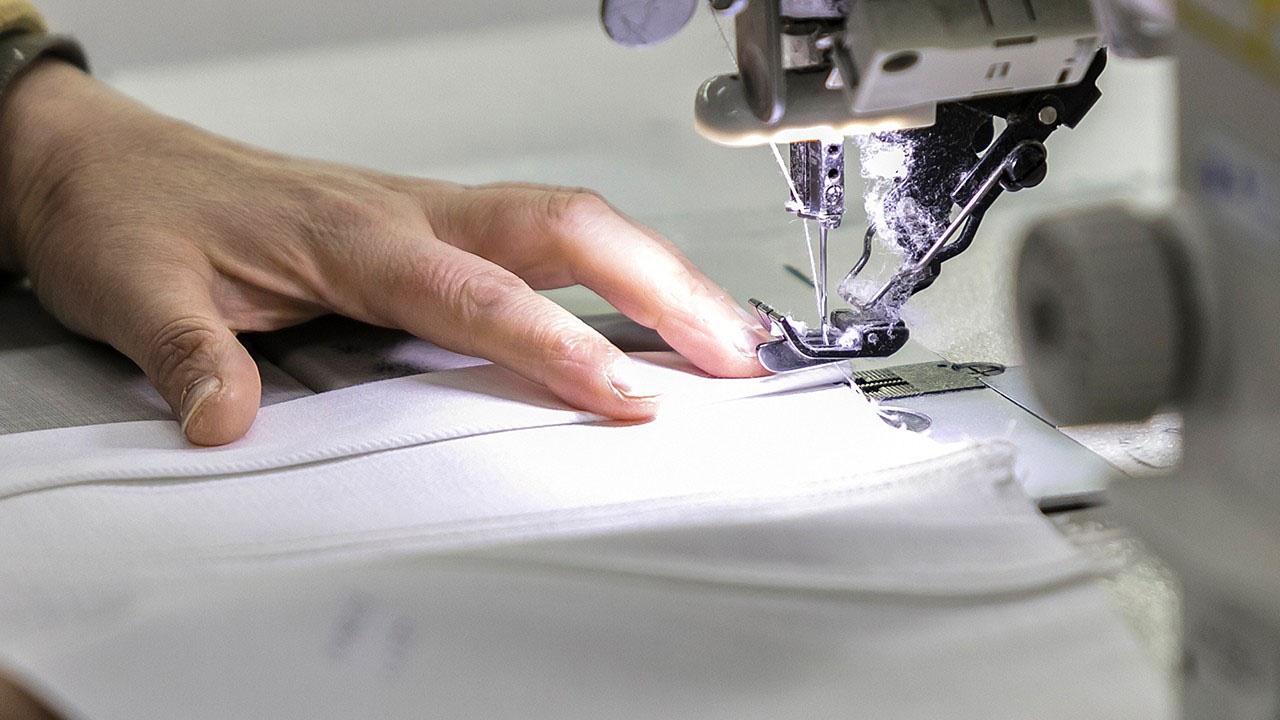Females in farming: how Almas Parveen is changing the face of cotton growing in Pakistan
In Pakistan, women have little opportunity to influence farming practices or business decisions, and female workers are often given low-paid, manual tasks, with less job security than men. But 28-year-old Almas Parveen has broken the mould, overcoming cultural challenges, managing her family’s cotton farm in a sustainable way, and becoming the voice of female empowerment and gender equality.
Almas Parveen has been running her family’s nine-hectare farm since her late teens. One of four siblings, she took her elderly father’s place in 2009. Rather than deferring management of the smallholding to a third-party male farmer, as is the custom in Pakistan, she was determined to take on the responsibility herself. Her aim? To cultivate healthy crops and ensure the greatest possible yields to support her family. Since then she has embraced sustainable agricultural practices, becoming a careful observer of the Better Cotton Principles and Criteria, and inspiring others to do the same.
Having reduced pesticide use on the farm by 35 per cent, in 2017-18 she raised yields and profits by 18 and 23 per cent respectively in a year. Not only does she support her family, she even paid for her brother’s wedding.
Talent and ambition bear fruit
The smallholding is located in the Vehari district of Pakistan’s Punjab province. One of the Better Cotton Initiative’s (BCI’s) six Implementing Partners (IPs) based here empowered Almas to take on the responsibility of running it. Known as the Rural Education Economic and Education Development Society (REEDS), this IP not only helped the ambitious and highly capable Almas to raise productivity, but even to take up a paid position as a BCI Field Facilitator. In March 2017, she began training local BCI Farmers in the field, raising awareness of social issues and sharing her knowledge of sustainable farming techniques. She wanted to spread the word, enabling other farmers – men and women alike – to benefit.
Crossing the hurdles
Almas’ transition to a position of responsibility in the community hasn’t been easy. Given the entrenched attitudes concerning the roles of men and women both in the home and in the field, the opposition was intense. Many disagreed with a young woman working on her own and coaching male farmers, and the farmers themselves felt wary of her, questioning her right to train them.
But undeterred by their discouraging voices, and invigorated by the support of her family and REEDS, Almas Parveen stood strong. She now trains 400 BCI Farmers, as well as supporting other cotton growers outside the BCI programme, working with men and women together, which is unique in this region.
The tangible results of her efforts have gained her the community’s respect, with perceptions of her gradually changing, and anger and apprehension turning into admiration and appreciation.
Teaching sustainable agriculture
In her field demonstrations, she teaches BCI Farmers to minimise the use of conventional pesticides by taking a precise, scientific approach to their application. They make biological pesticides together using neem tree leaves and herbs. She encourages farmers to identify and count certain kinds of pests before applying pesticides, and to maximise the effect of beneficial insects that prey on those that cause damage.
The farmers in her Learning Groups are taught to conduct soil tests to determine which fertiliser to apply when, and how much to use, often using local organic compost and manure.
Vehari’s BCI Farmers usually have to pump up groundwater for irrigation purposes, which is expensive. Almas Parveen encourages them to adopt efficient irrigation techniques such as laser-levelling (the precision-levelling of fields) to distribute water evenly and taking water to alternate furrows.
Empowering women, breaking with tradition
In Pakistan, the BCI’s IPs hold educational events for female farmers known as Rural Women’s Days so they can share their experiences. The main message is that women should be able to fulfil their dreams and that as BCI Farmers, they can access just the tools, knowledge and opportunities they need.
Today the IPs reach more than 117,500 female cotton workers and 140 female farmers in Punjab and Sindh province, helping them to overcome cultural, financial and practical challenges, and showing them how to farm cotton more sustainably.
Becoming a role model, making a difference
Female farmers like Almas Parveen set a powerful example in their communities, inspiring other women to take on more responsibility in their family businesses and encouraging girls to pursue leadership opportunities. This system is quite out of keeping with traditional ways in rural Pakistan where women have little opportunity to influence farming practices or business decisions and tend to be given low-paid, manual tasks on cotton farms, with less job security than men.
Intent on making a difference, Almas even gives talks to girls in schools on cotton farming as a viable future. In 2017, she helped to establish a primary school in her village.
She attends BCI Regional Members Meetings, reaching people well beyond her community, and in June 2018, she shared her story at the BCI Global Cotton Conference in Brussels, Belgium. As the voice of empowerment and gender quality, she is doubtless just the kind of role model the world needs.
Cotton: Pakistan’s main crop
In Pakistan, around 1.5 million smallholders rely on growing cotton for a living. As the country’s most widely cultivated crop, cotton is an essential raw material for the textile industry. However, as cotton farmers contend with the effects of extreme weather and pest outbreaks damaging the crops, the future of Pakistan’s cotton production will depend on men and women playing an equal role in fighting climate change and promoting sustainable farming practices.





